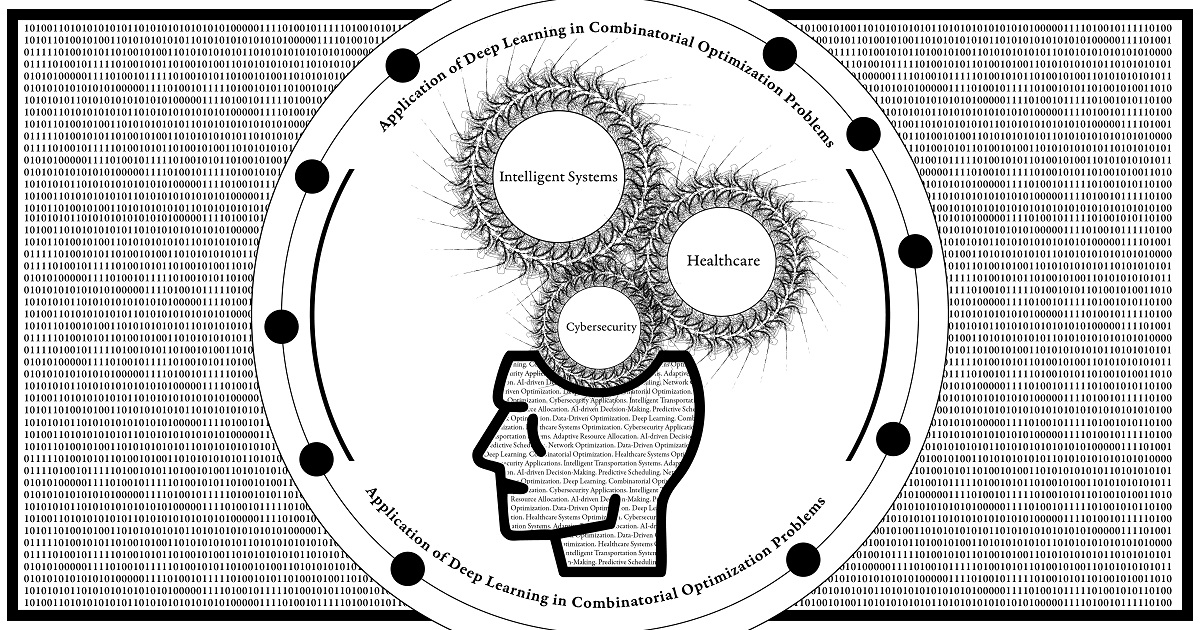Advances in Deep Learning for Complex Combinatorial Optimization: Applications in Cybersecurity, Healthcare, and Intelligent Systems
A special issue of Applied Sciences (ISSN 2076-3417). This special issue belongs to the section "Computing and Artificial Intelligence".
Deadline for manuscript submissions: 31 January 2026 | Viewed by 3747

Special Issue Editors
Interests: artificial intelligence; software engineering; artificial intelligence ethics
Interests: artificial intelligence (AI) and its applications; automatic control; renewable energy system design/optimization/simulation; Industry 4.0/5.0
Special Issues, Collections and Topics in MDPI journals
Special Issue Information
Dear Colleagues,
Traditional combinatorial optimization methods, while robust, often encounter limitations in dynamic and high-dimensional environments where deep learning can introduce significant advantages. This Special Issue focuses on innovative applications of deep learning in combinatorial optimization, exploring how deep learning techniques can address complex optimization challenges across various domains.
This Special Issue invites contributions from researchers and practitioners on topics such as intelligent routing, predictive scheduling, network optimization, and adaptive resource allocation. Emphasis will be placed on applications in critical areas including healthcare, cybersecurity, intelligent transportation, and education technology. By uniting theory and practice, this Special Issue aims to showcase methodologies and frameworks that push the boundaries of current optimization techniques, drive AI-augmented decision-making, and address real-world, multi-dimensional problems that demand efficient and scalable solutions. Contributions focused on interdisciplinary and emerging applications are highly encouraged.
Prof. Dr. Ernest Mnkandla
Prof. Dr. Zenghui Wang
Guest Editors
Manuscript Submission Information
Manuscripts should be submitted online at www.mdpi.com by registering and logging in to this website. Once you are registered, click here to go to the submission form. Manuscripts can be submitted until the deadline. All submissions that pass pre-check are peer-reviewed. Accepted papers will be published continuously in the journal (as soon as accepted) and will be listed together on the special issue website. Research articles, review articles as well as short communications are invited. For planned papers, a title and short abstract (about 250 words) can be sent to the Editorial Office for assessment.
Submitted manuscripts should not have been published previously, nor be under consideration for publication elsewhere (except conference proceedings papers). All manuscripts are thoroughly refereed through a single-blind peer-review process. A guide for authors and other relevant information for submission of manuscripts is available on the Instructions for Authors page. Applied Sciences is an international peer-reviewed open access semimonthly journal published by MDPI.
Please visit the Instructions for Authors page before submitting a manuscript. The Article Processing Charge (APC) for publication in this open access journal is 2400 CHF (Swiss Francs). Submitted papers should be well formatted and use good English. Authors may use MDPI's English editing service prior to publication or during author revisions.
Keywords
- deep learning
- combinatorial optimization
- healthcare systems optimization
- cybersecurity applications
- intelligent transportation systems
- adaptive resource allocation
- AI-driven decision-making
- predictive scheduling
- network optimization
- data-driven optimization
- optimization techniques
- terrestrial laser scanning
Benefits of Publishing in a Special Issue
- Ease of navigation: Grouping papers by topic helps scholars navigate broad scope journals more efficiently.
- Greater discoverability: Special Issues support the reach and impact of scientific research. Articles in Special Issues are more discoverable and cited more frequently.
- Expansion of research network: Special Issues facilitate connections among authors, fostering scientific collaborations.
- External promotion: Articles in Special Issues are often promoted through the journal's social media, increasing their visibility.
- Reprint: MDPI Books provides the opportunity to republish successful Special Issues in book format, both online and in print.
Further information on MDPI's Special Issue policies can be found here.






